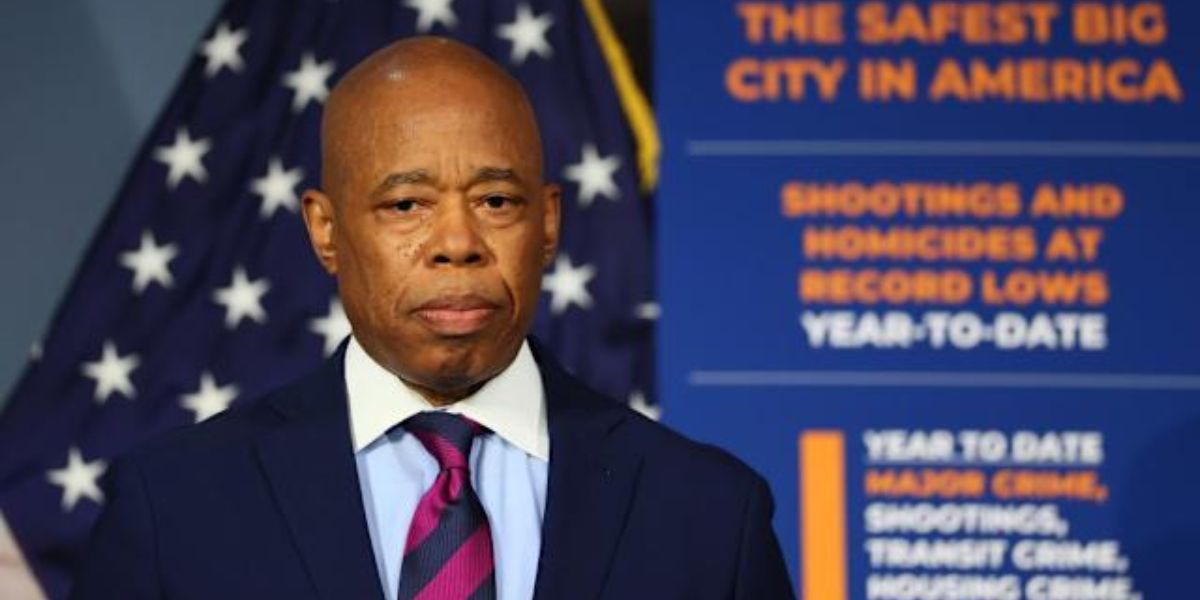A Republican-backed law that would have required Arizona’s municipal and state officials to assist federal enforcement in their efforts to crack down on immigration was rejected by Democratic Governor Katie Hobbs on Friday.
According to the plan, state and local governments could not ban the use of federal databases and grant funds associated with immigration enforcement, nor could they restrict or forbid collaboration with federal immigration initiatives.
Additionally, it would compel cooperation with immigration detainers, which are requests made to the federal government to hold onto individuals who are currently in state custody until they can be picked up by immigration authorities.
In her veto letter, Hobbs stated, “I will continue to work with the federal government on true border security, but we should not force state and local officials to take marching orders from Washington.”
Proponents claim the move is necessary to guarantee that federal officials can more simply and safely detain immigrants instead of having to find them after they have already been released from local jails or state prisons.
The collaboration demanded under the measure would be costly for local governments to implement and would negatively impact the assistance local police receive from members of immigrant communities, according to opponents, who argue that the state should leave immigration enforcement to the federal government.
Additionally, they note that Arizona’s immigration policies have previously resulted in legal issues, such as the 2013 racial profiling decision against the office of then-Maricopa County Sheriff Joe Arpaio for his signature traffic patrols that targeted immigrants.
In regards to President Donald Trump’s immigration attempts, Senate President Warren Petersen, a Republican from Gilbert, stated that his plan is to make Arizona a “partner and not an obstacle.”
In order to temporarily house individuals with detainers, the bill would force county jails and state prisons to engage into arrangements with Washington. Local authorities would have to abide with detainers and notify judges setting bail when a particular person has an immigration detainer.
Additionally, the bill would mandate that Arizona’s attorney general look into any suspected violations of the collaboration requirements and allow the attorney general to file a lawsuit to force an agency to comply. Advocates suggest withholding state-shared funds from local governments until compliance is achieved.
The topic of state and municipal collaboration with federal immigration enforcement was also covered by Arizona’s historic 2010 immigration law.
The statute permits citizens to file lawsuits for alleged infractions and prohibits state and local governments from restricting the enforcement of federal immigration law.
In the over 15 years since it was enacted, state representatives, campaigners for immigrant rights, and a group that represents counties claim they are not aware of any such cases being brought.
A bill that would have made it illegal for noncitizens to enter the state from Mexico at any point other than a port of entry was vetoed by Hobbs just over a year ago.
Voters subsequently approved the initiative after the Republican-led Legislature voted to place it on the November 2024 ballot, eluding the governor.
Read Also: Trump Replaces IRS Head as Tensions Rise Between Treasury and Elon Musk
Hobbs has acknowledged the concerns some families have about the immigration enforcement, but he has pledged to engage with Trump’s administration on matters like fighting fentanyl trafficking since he was elected to a second term.
In a stalemate with the Legislature, Hobbs has threatened to veto any laws that are delivered to her until a funding agreement is reached for a state organisation that serves individuals with developmental impairments.
According to GOP leaders, Hobbs has misappropriated agency cash. Republicans are using the crisis for “political warfare,” Hobbs retorts. She has stated that even bills that she favours could be vetoed.



